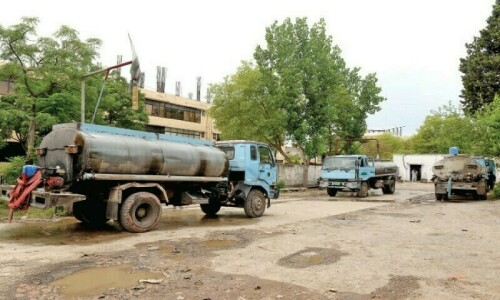
In June 2024, the National Assembly of Pakistan approved the budget for 2024-25, which included an 18 per cent general sales tax (GST) on packaged milk. This new taxation policy, effective from July 1, has led to a significant increase in packaged milk prices, making it less accessible to the general public. The affordability of milk has drastically declined, posing severe public health concerns.
Leading dairy companies in Pakistan have already responded to the new GST by adjusting their prices. The once affordable 250ml pack now costs Rs85-95, while a 1,000ml pack has leapt to Rs330-370. The 1,500ml pack, previously a common household size, now stands at a staggering Rs535.
Carton milk prices have seen a sharp rise for families accustomed to buying in bulk. These hikes, driven by the new GST, represent the widening chasm between the need for safe, nutritious milk and its affordability.
Milk is a nutritious and almost complete diet containing all essential nutrients required by people of all ages. However, an unregulated and mishandled supply chain makes it an excellent food for breeding microbial pathogens, antimicrobial drug residues, pesticides, aflatoxins, heavy metals, adulterants, and other harmful substances, especially in the hot summer.
Ensuring access to safe, nutritious milk is not just an economic necessity — it is a moral imperative
Boiling milk can only reduce the microbial load, leaving other harmful substances behind. Consuming such milk can lead to infections, gastrointestinal illnesses, and diseases caused by harmful adulterants.
According to a study by the University of Veterinary and Animal Sciences (UVAS), 92pc of loose milk in Pakistan is non-compliant with regulatory guidelines, while 54pc fails to meet safety standards. In a country where 95pc of milk consumed is already loose and often contaminated, this shift poses a dire public health risk.
The new tax will increase this ratio, making the problem more acute. This policy’s impact is profound, endangering future generations and burdening the healthcare system. As the regulated milk sector struggles under the weight of new taxes, the health of the nation’s children and vulnerable population hangs in the balance.
A cornerstone of child nutrition, milk is slipping away from the tables of those who need it the most. A Unicef survey on national nutrition in Pakistan revealed that nearly 10 million Pakistani children suffer from stunting, while eight out of 10 lack access to nutritious food.
According to the survey conducted in 2018, 28.9pc of children are reported as underweight, 17.7pc are wasted, and 50pc suffer from anaemia. Furthermore, the problem of hidden hunger is also alarming in the country. Malnutrition is a silent predator, contributing to 35 pc of under-five deaths.
These statistics tell a harrowing story. In July 2023, the Integrated Food Security Phase Classification (IPC) analysis highlighted 2.14m children suffering from malnutrition, including 1.5m with moderate acute malnutrition and 0.6m with severe acute malnutrition. It further underscores the crisis that acute malnutrition rates in Pakistan are twice that of South Asia and four times the global average.
The story of milk in Pakistan contrasts the rich and the poor, the healthy and the sick, the safe and the unsafe. Introducing an 18pc GST on packaged milk threatens to turn a daily necessity into an unattainable luxury for many. It is a call to action for policymakers to consider the broader implications of such taxes and to strive for solutions that uphold the health and well-being of every Pakistani.
The government must recognise the critical role of safe, affordable milk in public health. It is also required to make the milk supply chain “traceable,” as traceability will increase the responsibility of every stakeholder in the chain. Policies should aim to make safe milk accessible to all, ensuring it remains a viable option for families across Pakistan.
As the country navigates this challenge, the true measure of success will lie in its ability to protect its most vulnerable citizens. In the end, a nation’s strength is measured not by its fiscal policies but by the health and happiness of its people. Ensuring access to safe, nutritious milk is not just an economic necessity; it is a moral imperative.
The writer is Professor and Head of Department of Food Science and Human Nutrition at the University of Veterinary and Animal Sciences.
Email: sanaullah.iqbal@uvas.edu.pk
Published in Dawn, The Business and Finance Weekly, July 22nd, 2024













































Dear visitor, the comments section is undergoing an overhaul and will return soon.